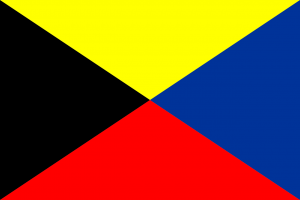Difference between revisions of "Language/Zulu/Grammar/Feminine"
Jump to navigation
Jump to search
m (Quick edit) |
m (Quick edit) |
||
| Line 60: | Line 60: | ||
http://mylanguages.org/learn_zulu.php | http://mylanguages.org/learn_zulu.php | ||
== | ==Other Lessons== | ||
* [[Language/Zulu/Grammar/Adverbs-of-time|Adverbs of time]] | * [[Language/Zulu/Grammar/Adverbs-of-time|Adverbs of time]] | ||
* [[Language/Zulu/Grammar/Adverbs-of-frequency|Adverbs of frequency]] | * [[Language/Zulu/Grammar/Adverbs-of-frequency|Adverbs of frequency]] | ||
| Line 70: | Line 70: | ||
* [[Language/Zulu/Grammar/Plural|Plural]] | * [[Language/Zulu/Grammar/Plural|Plural]] | ||
* [[Language/Zulu/Grammar/Plurals|Plurals]] | * [[Language/Zulu/Grammar/Plurals|Plurals]] | ||
<span links></span> | |||
Latest revision as of 10:48, 27 March 2023
| English | Zulu |
|---|---|
| Feminine | Ubulili |
| he is happy | ujabulile |
| she is happy | ujabulile |
| he is American | ungowaseMelika |
| she is American | ungowaseMelika |
| man | indoda |
| woman | owesimame |
| father | ubaba |
| mother | umama |
| brother | umfowethu |
| sister | udadewethu |
| uncle | umalume |
| aunt | u-anti |
| bull | inkabi |
| cow | inkomo |
| boy | umfana |
| girl | intombazane |
Sources[edit | edit source]
http://mylanguages.org/learn_zulu.php
Other Lessons[edit | edit source]
- Adverbs of time
- Adverbs of frequency
- Pronouns
- Questions
- Adverbs of place
- Negation
- Adverbs of manner
- Plural
- Plurals

